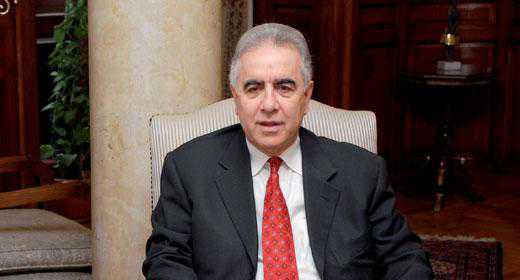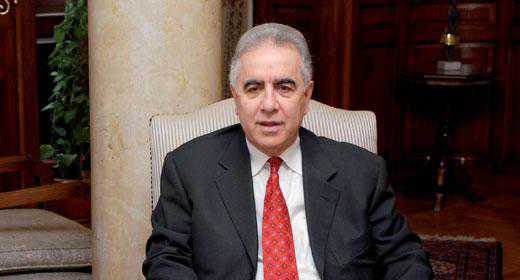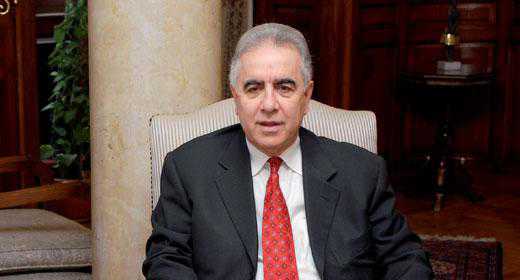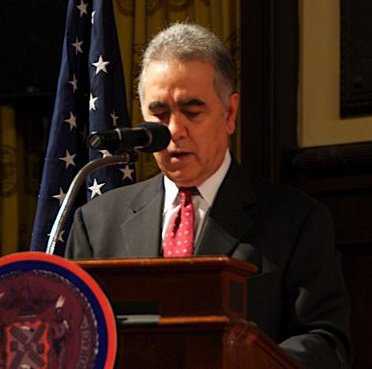
My latest column on Turkish Foreign Minister Ahmet Davutoglu’s efforts to initiate a dialog with the Diaspora generated numerous reactions from both Armenians and Turks.
Turkish newspapers, TV stations, and websites gave extensive coverage to Davutoglu’s reported overtures to Armenians. The Turkish media linked the Foreign Minister’s initiative to Armenian plans for the commemoration of the 100th anniversary of the Genocide in 2015.
Armenians posted dozens of comments on websites and facebook in response to my column which was circulated worldwide in English, Armenian, Turkish, French, and Russian. The Armenian reaction was understandably skeptical and cautious. Armenian government officials quietly followed the reports on Davutoglu’s meetings without making any public comment, while the Armenian press in Istanbul simply reprinted what the Turkish media had published on this topic.
Armenian readers raised two key issues: Who would represent the Diaspora if and when Armenians start negotiating with Turkey, and what should be the specific Armenian demands from the Turkish government?
These are highly complex issues deserving serious consideration by Armenians worldwide. Ideally, Diaspora representatives should be selected through elections in various countries, as proposed in my earlier columns. Those elected would have the right to represent Diaspora Armenians in any negotiations.
These representatives would have to coordinate their decisions and actions with the Armenian government, particularly on the critical issue of negotiating with Turkey, by forming a joint delegation. As Armenians learned from the recent fiasco of the Armenia-Turkey Protocols, it would be unthinkable to reach a settlement with Turkey without the participation and agreement of both Armenia and the Diaspora.
In the absence of an elected Diasporan structure, representatives of the three main Armenian political parties, jointly with the Armenian government, could take the lead in forming a single negotiating team. To make the delegation more inclusive, several major community organizations and prominent individuals could be asked to join, including representatives of Armenians in Turkey.
Another critical issue is framing the agenda of negotiations with Turkish officials. What are the Armenians’ concrete demands from Turkey? This is an extremely serious and sensitive matter that requires in depth knowledge of the Armenian Cause and expertise in negotiating strategies and tactics.
It would be instructive for Armenians to review how Israel and 23 major Jewish organizations came together as the
Conference on Jewish Material Claims Against Germany, to obtain restitution for Holocaust victims; and how these organizations coordinated their positions with the State of Israel which signed a separate Reparations Agreement with West Germany? Over the years, as a result of their collaborative efforts, the coalition of Jewish Diaspora organizations and Israel received more than $70 billion dollars in restitution from Germany.
Additional lessons could be learned from examples of financial settlements resulting from mass torts, asbestos exposure and product liability, and claims arising from destruction of the World Trade Center and the Gulf oil spill.
There is, however, a significant difference between the Holocaust and the Armenian Genocide. While the Jewish people were exterminated in European countries under Nazi rule, Armenians were massacred and forcefully driven from their ancestral homeland. Therefore, no amount of monetary payment will fully compensate Armenians for the loss of their historic lands. Armenians should seek not only compensation for their personal losses, but also the return of Western Armenia as arbitrated by Pres. Woodrow Wilson — a claim Turkey has repeatedly rejected.
Should serious negotiations materialize, the joint Armenian delegation could ask Turkey to take the following preliminary actions to show its good faith:
— Compensate all Genocide victims;
— Rebuild and return all religious sites to the Armenian Patriarchate of Istanbul;
— Return all confiscated private and community properties to their Armenian owners;
— Provide the Republic of Armenia with special access to the Turkish port of Trabzon for commercial purposes;
— Give Armenians visa-free entry to Ararat, Ani, and other Armenian historical sites in Turkey;
— Lift the blockade of Armenia;
— End Turkey’s official policy of denial of the Armenian Genocide and annul Article 301 of the Turkish Penal Code;
— Refrain from all hostile policies directed against Armenia and Artsakh (Karabagh).
These measures, if agreed upon, would represent significant progress in the pursuit of Armenian claims from Turkey, whereas the issue of territorial restitution could be addressed separately through international legal action.
——FOLLOW UP ————————
Armenians Should Form a United Front Before Any Negotiations With Turkey
Harut Sassounian,
Harut Sassounian
My latest column on Turkish Foreign Minister Ahmet Davutoglu’s efforts to initiate a dialog with the Diaspora generated numerous reactions from both Armenians and Turks.
Turkish newspapers, TV stations, and websites gave extensive coverage to Davutoglu’s reported overtures to Armenians.
The Turkish media linked the Foreign Minister’s initiative to Armenian plans for the commemoration of the 100th anniversary of the Genocide in 2015.
Armenians posted dozens of comments on websites and facebook in response to my column which was circulated worldwide in English, Armenian, Turkish, French, and Russian. The Armenian reaction was understandably skeptical and cautious. Armenian government officials quietly followed the reports on Davutoglu’s meetings without making any public comment, while the Armenian press in Istanbul simply reprinted what the Turkish media had published on this topic.
Armenian readers raised two key issues: Who would represent the Diaspora if and when Armenians start negotiating with Turkey, and what should be the specific Armenian demands from the Turkish government?
These are highly complex issues deserving serious consideration by Armenians worldwide. Ideally, Diaspora representatives should be selected through elections in various countries, as proposed in my earlier columns. Those elected would have the right to represent Diaspora Armenians in any negotiations.
Ahmet Davutoglu
These representatives would have to coordinate their decisions and actions with the Armenian government, particularly on the critical issue of negotiating with Turkey, by forming a joint delegation. As Armenians learned from the recent fiasco of the Armenia-Turkey Protocols, it would be unthinkable to reach a settlement with Turkey without the participation and agreement of both Armenia and the Diaspora.
In the absence of an elected Diasporan structure, representatives of the three main Armenian political parties, jointly with the Armenian government, could take the lead in forming a single negotiating team. To make the delegation more inclusive, several major community organizations and prominent individuals could be asked to join, including representatives of Armenians in Turkey.
Another critical issue is framing the agenda of negotiations with Turkish officials. What are the Armenians’ concrete demands from Turkey? This is an extremely serious and sensitive matter that requires in depth knowledge of the Armenian Cause and expertise in negotiating strategies and tactics.
It would be instructive for Armenians to review how Israel and 23 major Jewish organizations came together as the Conference on Jewish Material Claims Against Germany, to obtain restitution for Holocaust victims; and how these organizations coordinated their positions with the State of Israel which signed a separate Reparations Agreement with West Germany? Over the years, as a result of their collaborative efforts, the coalition of Jewish Diaspora organizations and Israel received more than $70 billion dollars in restitution from Germany.
Additional lessons could be learned from examples of financial settlements resulting from mass torts, asbestos exposure and product liability, and claims arising from destruction of the World Trade Center and the Gulf oil spill.
There is, however, a significant difference between the Holocaust and the Armenian Genocide. While the Jewish people were exterminated in European countries under Nazi rule, Armenians were massacred and forcefully driven from their ancestral homeland. Therefore, no amount of monetary payment will fully compensate Armenians for the loss of their historic lands. Armenians should seek not only compensation for their personal losses, but also the return of Western Armenia as arbitrated by Pres. Woodrow Wilson — a claim Turkey has repeatedly rejected.
Should serious negotiations materialize, the joint Armenian delegation could ask Turkey to take the following preliminary actions to show its good faith:
— Compensate all Genocide victims;
— Rebuild and return all religious sites to the Armenian Patriarchate of Istanbul;
— Return all confiscated private and community properties to their Armenian owners;
— Provide the Republic of Armenia with special access to the Turkish port of Trabzon for commercial purposes;
— Give Armenians visa-free entry to Ararat, Ani, and other Armenian historical sites in Turkey;
— Lift the blockade of Armenia;
— End Turkey’s official policy of denial of the Armenian Genocide and annul Article 301 of the Turkish Penal Code;
— Refrain from all hostile policies directed against Armenia and Artsakh (Karabagh).
These measures, if agreed upon, would represent significant progress in the pursuit of Armenian claims from Turkey, whereas the issue of territorial restitution could be addressed separately through international legal action.
Հայերը Պէտք Է Միասնական Ճակատ Կազմեն՝ Թուրքիոյ Հետ Որեւէ Բանակցութիւն Վարելէ Առաջ
Հայերը Պետք Է Միասնական Ճակատ Կազմեն Թուրքիայի Հետ Ցանկացած Բանակցություն Վարելուց Առաջ
Armenians Should Form a United Front Before Any Negotiations With Turkey
Les Arméniens doivent former un front uni avant d’entamer toute négociation avec la Turquie
Армяне Должны Сформировать Единый Фронт До Любых Переговоров С Турцией







